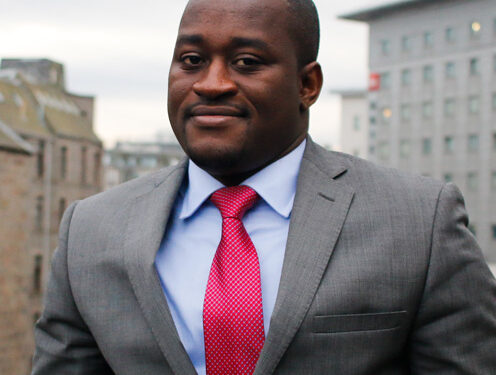Ghana’s IMF programme likely to be extended to 2027- Economist
Acheampong highlighted the intricate political dynamics at play, pointing out that fulfilling all obligations within the programme would necessitate significant political trade-offs—an unlikely proposition, especially in an election year.
- Advertisement -
Political Risk Analyst and Economist, Theo Acheampong, has put forth a compelling forecast, suggesting the extension of Ghana’s current three-year IMF programme beyond its anticipated conclusion in 2026, with a likely extension to 2027.
Acheampong’s insights were shared during a thought-provoking NorvanReports and Economic Governance Platform Twitter Space Conversation titled “Restructuring Of Domestic Bonds, Where Do We Go From Here,” on Sunday, June 25, 2023. The basis for this projection lies in the potential difficulties Ghana may face in meeting its commitments as outlined in the IMF programme, primarily due to the forthcoming national elections.
- Advertisement -
Acheampong highlighted the intricate political dynamics at play, pointing out that fulfilling all obligations within the programme would necessitate significant political trade-offs—an unlikely proposition, especially in an election year.
- Advertisement -
Drawing on historical precedent, Acheampong cited Ghana’s 2015 IMF programme, which was initially slated to conclude in 2018 but was extended to 2019 due to the government’s challenges in meeting certain commitments amidst increased expenditure during the 2016 election year.
Expressing skepticism, Acheampong emphasized that Ghana’s ability to fulfill commitments for the current year and the upcoming election year appears doubtful, considering the historical behavior and political landscape. Consequently, he posited that an extension of the IMF programme into 2027 is highly likely, allowing for additional time to navigate the political complexities and fulfill outstanding commitments.
- Advertisement -
Furthermore, Acheampong explored the topic of domestic debt restructuring, suggesting that should the government encounter significant hurdles in securing agreement from external creditors for a restructuring deal, a second restructuring may become necessary. This course of action, he contended, would serve as a set of “corrective actions” aimed at achieving debt sustainability and facilitating a successful progression through the IMF programme.
Acheampong’s expert forecast sheds light on the inherent challenges Ghana faces in fulfilling its commitments within the IMF programme, particularly against the backdrop of imminent national elections. The anticipated extension of the programme underscores the delicate equilibrium that must be maintained between economic imperatives and political considerations. Moreover, the potential need for a second debt restructuring demonstrates the government’s commitment to addressing debt sustainability concerns and ensuring a smooth progression through the IMF programme.
As the intricacies of Ghana’s economic and political landscape unfold, close attention will be paid to the government’s actions and its ability to strike the delicate balance between political exigencies and the pursuit of economic stability. Ultimately, the goal remains to foster sustainable economic growth while successfully navigating the complexities of the IMF programme.
Source: Norvanreports
- Advertisement -


